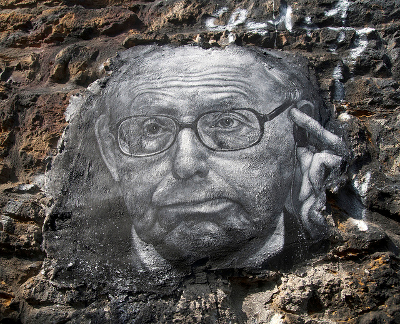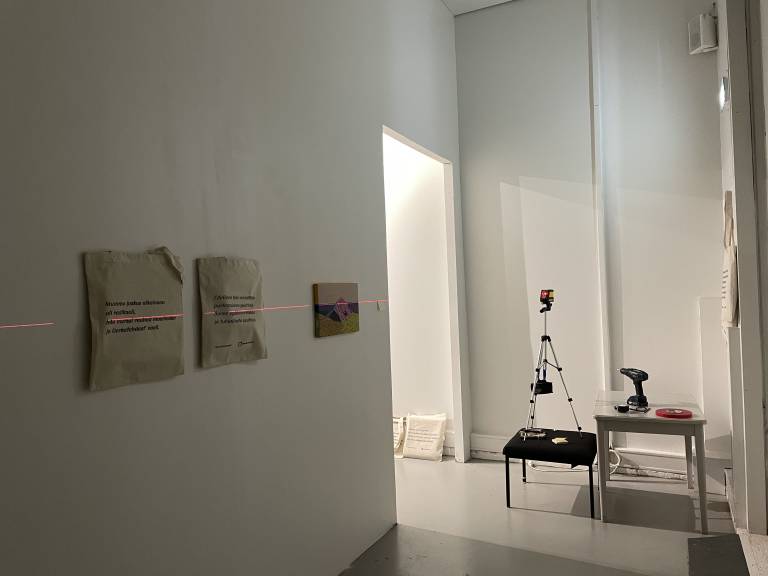
”Further analysis [Copenhagen shootings] in the days to come will doubtless be framed in the clash thesis, with less and less explanation required for trained audiences around the world.”
Alustus! From armchair discussions to Twitter battles, and from media clashes to academic debates. Analyses of the Charlie Hebdo affair peaked shortly after the event and, just as quickly, died down. Some activists still bring up the matter in other contexts, and international news TV keeps viewers updated with any progress the French police is making or with sporadic anti-Hebdo protests around the Muslim world. But it seems that a good enough explanation has been found to sate the inquisitiveness of most.
This explanation is rooted in a ‘clash of civilizations,’ the infamous thesis put forward by Samuel Huntington in 1993 that future wars will take place not along political-ideological lines but along civilizational ones (Huntington 1993, 1996). The Danish cartoons furor of 2005 was readily framed in that self-fulfilling prophecy. It now appears that Huntington’s legacy is made to order for European magazine satire on Islam. Just as in 2005, the commentary around the Charlie Hebdo murders and explosive aftermath is polarized on a civilizational axis: Western freedom of speech vs. Muslim sensibilities about their religion. The ready-made frame is easy to adopt for news-bite media as well as trained and expectant audiences. The media framing, in turn, just as easily takes on a life of its own, feeding predictable political responses of Islamic protests and European far-right demonstrations.
Just on February 14, a Muslim Dane shot two people in Denmark in connection with the Danish satirist involved in the 2005 cartoons. The following day, a leading British newspaper, The Guardian, carried the story with the title: “Copenhagen killings: Bewildered Europe struggles to defend freedom of speech and religion” (Tisdall 2015). Further analysis in the days to come will doubtless be framed in the clash thesis, with less and less explanation required for trained audiences around the world.
The framing is correct as far as it goes. But it doesn’t go very far. Of course there is a tension between freedom of speech and civil respect for others’ sensibilities. Yet, it is just as easy to note that nobody has ever protected complete freedom of speech. In his novel Immortality, Milan Kundera pointed out that the right to freedom for an action has never equaled the duty to perform that action. Just because one is free to say anything doesn’t mean that one does, in fact, say anything. In his analysis on the Hebdo affair, noted Columbia University anthropologist Mahmood Mamdani suggests that this is the difference between internal blasphemy (which might be liberating) and external bigotry (which is never helpful) (Venkat 2015).
Whether a critique is emic or etic, the point is that the right to freedom of speech has always been tempered by morality expressed as civility. Everybody agrees that certain lines should not be crossed; the only debate is where that line should be. It’s a shifting boundary. In the late 1940s, German satirists were tried and convicted for war crimes on the grounds of anti-Semitism and Nazi collusion, and after the Rwanda genocide three journalists were tried for crimes against humanity on account of hate speech. In Britain, there are laws against blasphemy too (although these only apply to offences against the dominant Christian denomination). Today, it would be difficult to imagine justifying satire in Europe that targets black people or homosexuals by making fun of essential characteristics. And, it would be well-nigh impossible to justify making fun of evolution theory or the ideal of democracy in North America.
So, freedom of speech in and of itself is not the civilizational flash point it is readily made out to be. What’s missing in the Charlie Hebdo commentary is a bit of reflexivity. Why do we take it as self-evident that the world is divided into civilizational blocs at war with each other? Why is it so natural to view this as a clash of civilizations polarized along axes of freedom vs. civility? And what do we miss out? Perhaps we would gain more by taking a step back from the now-natural assumption of a clash of civilizations and ask why we look no further.
One answer to this question is broadly rooted in phenomenology, or the approach to the ‘thing’ as it appears to us. So, how does it appear to us? First off, we are by now well-conditioned to think of countries as more or less hermetically sealed containers into which the world’s population is divided. From there, it is but a small step (of technological advance in communication and transport) to think of the countries as divided into different civilizational camps. The image is similar to the way different proud regiments are arrayed in the same army opposing other armies, also comprising regiments. The more imaginative might even suggest that we do away with the regimental structure and just think of soldiers in one army.
Of course, this metaphor shows how artificial this construction is. Nation-states are relatively recent emergent onto the world order, and there is nothing at all ‘natural’ about them. And a whole sub-discipline of sociology is dedicated to showing that they are far from hermetically sealed (including in our own TCuPS – Tampere research group for Cultural & Political Sociology). Not only are nation-states criss-crossed by transnational linkages of ideas, peoples and policies, but also their very constitution in such similar fashions is governed by a shared imagination. As Benedict Anderson (1991) pointed out, nations are ‘imagined communities.’ Yet, the imagery of a nation-state as a natural entity is constantly brought across our doorsteps, reinforcing its banality. Now the European Union has decided to raise the geographical and cultural stakes by bringing advertisements of regional/civilizational solidarity to our television sets!
The next element in how Hebdo appears to us has to do with the fact that Huntington’s thesis is scientific. To recognize this, we must first dispel the equally common idea that academics is an ‘ivory tower.’ Social scientists, in particular, are very much part and parcel of the tussle of politics, from streets to summits. In the same way that media frames are linked to politics so also social science theories both inform politics and are in turn informed by them. They are part of the same social continuum. Scientists, as well as politicians, media professionals, and even citizens are all involved in the great game of “epistemic governance,” or the making of collective decisions by taking into account how others construe the social world (Alasuutari and Qadir 2014).
This becomes apparent when we realize that theories are built on the same conceptual foundations as media or other political discourses. Unlike mathematical theories, social science theories use the same language that is in play in the media, political debates, and our kitchens (although, it might pay us to question this also-natural assumption about mathematics). According to American social theorist Richard Brown (1989), this is because all theories are essentially founded on metaphors: making sense of a complex reality by transposing it to another domain. At root, Brown suggests, there are a limited number of metaphors by which humans make sense of social reality, and social theories build on combinations of these metaphors.
This explains why every so often a theory comes along that speaks to us intimately: we get it. That is because it builds faithfully and consistently on a powerful root metaphor. Huntington’s ‘clash of civilizations’ thesis is certainly one such. The clash theory is firmly grounded in the root metaphor of social conduct as a game. Huntington worked on this root metaphor to elaborate an imagery of competition. This imagery is naturally connected with a popular conception of the world as divided into competing blocs, along the lines of Thomas Hobbes’ famous description of human nature as Bellum omnium contra omnes – war of all against all. A natural corollary of this imagery is community-building. If the world is divided into competing blocs, then it becomes natural to build solidarity with ‘your’ bloc, similar to how it is natural to support ‘your’ national Olympics team or local hockey club. In this sense, Huntington’s theory is ‘successful’ not because it directly explains anything in society, but because it elaborates an imagery of competition that is, itself, grounded in a very powerful root metaphor of social conduct as game.
When the imagery of competition is combined with the extension from nation-state to cultural civilization, we have a complete social framework to explain the Hebdo affair in terms that we will readily appreciate. All that remains is for actors to make the connections obvious of which the competing teams are in this particular case. One final element remains: that of the moral axis projected onto the conflict. The reason for this is a bit more complex and elaborating it would require further space. Briefly, the reason is grounded in the fact that human perception is fundamentally informed by morality: in a sense, we all have moral spectacles that place any phenomenon on a sort of scale. Very often, this scale is informed by the academic presumptions inherent in the theory at stake, in this case civilizational.
So, the clash theory is especially successful in the Hebdo case because it appeals to us, not that it appeals to us because it is successful in explaining social reality. A fundamental feature of the perspective I have used to describe this, is that there is nothing more ‘real’ hiding behind this construction. Of course, the Hebdo assassins had political motivations, money, guns, safe houses, etc. But they are also part of the same imagery of society as divided into civilizational competing blocs.
That doesn’t take away from the reality of the murders of the Hebdo staff. What I am arguing for here is recognition that social scientists are implicated in the affair, more so since the Hebdo murders followed the extensive commentary of the Danish cartoons, and followed similar commentary on the unfolding ISIS activity. The modern world is far more interconnected than we care to admit. It is not just a matter of connectivity via ICT and cheap airfares, but of connectivity across different sectors of society working on the same cultural scripts and metaphors. As academics, we now need a far more nuanced social theoretic approach to the world around us, a world that we are part of. Social scientists are not somehow removed from politicians, media professionals, activists of one kind or another, and so on. Our theories are connected to popular and political frames, just as those are connected with the theories. While the classics believed that social science reflects on society, the new canon is that social science reflects society. Now, we can say that reflection is intervention.
In short: it’s a small world after all … much smaller than we thought.
References
Alasuutari, Pertti, and Ali Qadir (2014). ”Epistemic governance: An approach to the politics of policy-making.” European Journal of Cultural and Political Sociology 1(1):67-84.
Anderson, Benedict (1991). Imagined Communities: Reflections on the Origin and Spread of Nationalism. London: Verso.
Brown, Richard H. (1989). A Poetic for Sociology: Toward a Logic of Discovery for the Human Sciences. Cambridge, UK: Cambridge University Press.
Huntington, Samuel P. (1996). The Clash of Civilizations and the Remaking of World Order. New York: Simon & Schuster.
Huntington, Samuel P. (1993). ”The Clash of Civilizations?” Foreign Affairs 72(3):22-49.
Tisdall, Simon (2015). ”Copenhagen killings: bewildered Europe struggles to defend freedom of speech and religion.” Europe section in The Guardian. London. Accessed on February 16, 2015.
Venkat, Vidya (2015). ”Charlie Hebdo cartoons are bigoted: Interview with Mahmood Mamdani.” Opinion section in The Hindu. Delhi. Accessed on February 16, 2015.






